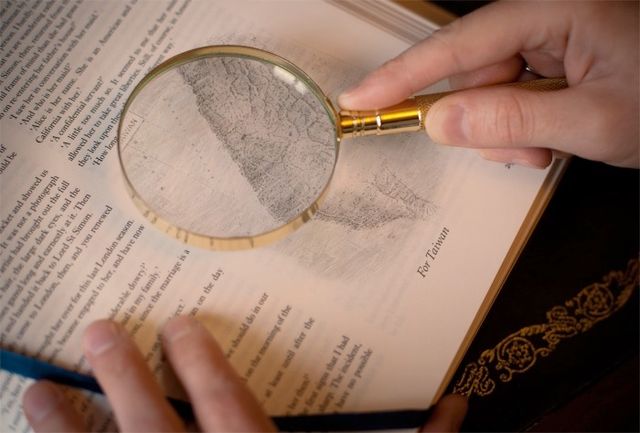| 新聞報導 - 大地新聞報導 | |
| 作者 台灣大地文教基金會 | |
| 2014-07-28 | |

內文翻譯:
致意台中,台灣,1998年11月27日 親愛的安南先生, 希拉蕊女士, 中國宣稱2千萬公民死於1937-45年與大日本帝國陸軍的戰爭,1937年南京大屠殺殺了14萬人,根據盟軍對日本戰犯甚畔的資料。 北京要求東京對於戰爭期間對中國人所造成的痛苦做出明確的聲明,江澤民抵達時說,”檢討過去中國與日本關係的歷史經驗是很重要的”。 就我們的觀點,那個要求是所有華人的希望,我們支持這個議題。 根據報導,北京未能說服東京加強對台灣的孤立,而該聯合公報也只是”強調日本與台灣的關係並非政府對政府的層級。” 新的聲明將重申1972年的聯合公報即日本了解與尊重中國大陸對台灣的立場──北京認為台灣是它領土的一部分。 在東京中部的一場人權遊行,由日本國際特赦組織所發佈的一份聲明中提到他們已經寫信給小淵惠三敦促他鼓勵江澤民改善人權。 中國大陸領導人的造訪”是對日本政府一個極佳的機會去扮演在國際社會中保障人權的重要角色,尤其是在亞洲”,日本國際特赦組織說。 報導指出,中國大陸當局在鎮壓非正式教會時羈押超過70名新教領袖,並涉及凌虐、槍擊與像罰款的贖金,1998年11月25日一個人權團體說。遭羈押的新教徒是所謂”家庭教會”的領導者─逃避中國共產黨所控制的國營教會並秘密禮拜,於本月初在河南省中部被圍捕,中國的人權團體說。 在許多方面,中國大陸有暗示對於改變的開放,允許一個美國總統在國營電視台講話,給公民更多他們所選擇的旅行與工作的自由,也簽署人權公約,同時,政府也驅逐了外國記者並監禁中國大陸的記者。 在開放更多自由失敗的背後,中國大陸正展開一場反資訊革命,它的國安單位用關於秘密與顛覆的法律來壓制中共不喜歡的資訊並封鎖發訊人。 在中國大陸,幾乎所有還沒被嚴加管控的國營媒體發佈之資訊都會被視為機密,政府也對外國報導設下嚴格的規範,雖然執法是零星與任意的。 對於大陸公民,風險更高,違反國家機密的法律刑責最重是死刑,此種廣泛的定義使得哪一類資訊會被當局視為敏感變成不得而知。 大眾被允許收看美國總統柯林頓在該國談論他對民主的觀點──受控管的電視台。在聯合國協議中,政府必須宣示維護基本的公民、經濟與社會權,但中國大陸公民只要試圖行使這些權利就會讓自己身陷麻煩。 大約有40名來自中華民國(台灣)支持台灣獨立的行動人士,在大陸主席江澤民開始他的六天日本國家訪問時(1998年11月25日,東京)舉行一場示威。 這場示威,包含幾十位居住在日本的中華民國國民,揮舞著海報與布條抗議中國大陸威脅要武力犯台及它對台灣持久的外交絞殺戰略。 布條與海報寫著”抗議中國壓迫台灣””支持一中,一台,支持台灣獨立”。 中國大陸一直對日本施壓要擬出一份聯合聲明讓江澤民訪問日本時簽署,就是所謂關於台灣的”三不”政策。 ──不支持台灣獨立。 ──不支持”兩個中國”或”一中,一台”。 ──不支持台灣加入需要主權地位的國際組織。 “三不政策”侵犯了台灣人民的權利,只有台灣人有權力說”要”或”不要”,我們對於” 日本了解與尊重中國大陸對台灣的立場”感到高興,意即”三不政策”對日本政府沒效,因為引述1945年的波次坦宣言與舊金山合約,日本沒有合法權力來處理有關台灣地位的問題。 沼田也重申了日本對台政策的連續性與一致性,強調日本政府無意調整1972年日本與中國大陸建立外交關係聯合公報中對台灣的論述。 我們衷心促請世界上任何一個國家尊重台灣的民主與二千二百八十萬台灣人民的利益。 台灣需要您們的協助。 楊緒東 台灣大地文教基金會董事長
Nov. 27,1998---Kofi A. Annan, Hillary Rodham Clinton
Taiwan Tati Cultural And Educational Foundation B16F, No.3 Ta-Tun 2St. Taichung, Taiwan, ROC November 27, 1998. Dear Mr. Kofi A. Annan, Mrs. Hillary Rodham Clinton, China claims 20 million citizens died as a result of the 1937-45 war with Japan's Imperial Army. The 1937 Nanjing massacre killed 140,000 people, according to allied trials of Japanese war criminals. Beijing had demanded Tokyo make a clear-cut statement over the suffering inflicted on Chinese during Japan's invasion. As Jiang said on his arrival, "a review of the past experience of the history of China-Japan relationship is of great significance." In our view that demanded is all Chinese wish, we support the issue. According to reports; Beijing had failed to persuade Tokyo to strengthen the isolation of Taiwan and the joint communique would simply "emphasize that Japan-Taiwan relations are not at government-to-government level." The new statement would reaffirm a 1972 joint communique which says Japan understands and respects mainland China's position on Taiwan, regarded by Beijing as part of its territory. At the human rights rally in central Tokyo, a statement distributed by Amnesty international Japan said it had written a letter to Obuchi urging him to encourage Jiang to improve rights. The mainland Chinese leader's visit "is a great opportunity for the Japanese government to play a significant role in protecting human rights in the international community, particularly in Asia" it said. Reports said; mainland Chinese authorities are holding more than 70 Protestant leaders in a crackdown on unofficial churches that has involved torture, a shooting and ransom like fines, a human rights group said on Nov. 25, 1998. The detained Protestants were leaders of so-called "house churches" --- groups that shun communist party-controlled state churches and worship underground --- and were rounded up early this month in central Henan province, human rights in China said. In many ways, mainland China has signaled its openness to change, allowing a U.S. President to speak on state-run television, giving its citizens more freedom to travel and work as they choose, and signing human rights treaties. At the same time, the government has expelled foreign reporters and imprisoned mainland Chinese journalists. Behind the more open liberal fall, mainland China is fighting an information counter revolution, its state security apparatus used laws on secrecy and subversion to suppress information the ruling communist party dislikes and to lock up the messengers. In mainland China, nearly all information that has not been published in the tightly controlled state media is regarded as classified. The government also set strict rules for foreign reporting, although enforcement is sporadic and arbitrary. For mainland citizens, the stakes are much higher. The maximum penalty for violating the state secrets law is death. A broad definition that makes it impossible to know what kind of information the authorities will view as sensitive. The public was allowed to watch U.S. President Bill Clinton voice his views about democracy on state---controlled television. In U.N. accords, the government has pledged to uphold basic civil, economic and social rights. But mainland Chinese citizens who attempt to exercise those rights can find themselves in trouble. About 40 pro-Taiwan independence activists from the Republic of China(Taiwan) staged a demonstration in front of the mainland President Jiang Zemin started his six-day state visit to Japan (Tokyo, Nov. 25, 1998) The demonstrators, including dozens of ROC nationals residing in Japan, brandished posters and banners protesting mainland China's threats of force against Taiwan and its persistent diplomatic strangulation strategy against Taiwan. The banners and posters read "protest China's suppression of Taiwan" "support one China, one Taiwan, and support Taiwan independence." Mainland China has been pressing Japan to spell out in a joint statement to be signed during Jiang's Tokyo visit a so-called "three no's" policy regarding Taiwan --- no support for Taiwan independence --- no support for "two Chinas" or "one China, one Taiwan" --- no support for Taiwan's membership in international organizations which require statehood. The "three no's" is invading Taiwan people's rights. Only Taiwan people have the right to say "yes" or "no". We feel delight in "Japan understands and respects mainland China's position on Taiwan", that "three no's" is of no work in Japan government, because of Japan has no legitimate right to address issues related to Taiwan's status quoting the 1945 Potsdam Declaration, and the San Francisco Peace Treaty. Numata also reaffirmed the continuity and consistence of Japanese policy toward Taiwan, stressing that the Japanese government has no intention of adjusting the stance on Taiwan stated in the 1972 joint communique on the establishment of diplomatic ties between Japan and mainland China. We heartily urge that any countries in our world respect Taiwan's democracy and interests of the 22.8 million people of Taiwan. Taiwan need your support. Sincerely Yours, Yang Hsu-Tung. President of Taiwan Tati Cultural And Educational Foundation 相關閱讀: 楊緒東醫師給希拉蕊的信(20) 楊緒東醫師給希拉蕊的信(19) 楊緒東醫師給希拉蕊的信(18) 楊緒東醫師給希拉蕊的信(17) 楊緒東醫師給希拉蕊的信(16) 楊緒東醫師給希拉蕊的信(15) 楊緒東醫師給希拉蕊的信(14) 楊緒東醫師給希拉蕊的信(13) 楊緒東醫師給希拉蕊的信(12) 楊緒東醫師給希拉蕊的信(11) 楊緒東醫師給希拉蕊的信(10) 楊緒東醫師給希拉蕊的信(9) 楊緒東醫師給希拉蕊的信(8) 楊緒東醫師給希拉蕊的信(7) 楊緒東醫師給希拉蕊的信(6) 楊緒東醫師給希拉蕊的信(5) 楊緒東醫師給希拉蕊的信(4) 楊緒東醫師給希拉蕊的信(3) 楊緒東醫師給希拉蕊的信(2) 楊緒東醫師給希拉蕊的信(1) 希拉蕊給楊緒東醫師的回信 延伸閱讀: 商業周刊-獨家專訪呼聲最高的下一位美國總統 希拉蕊:越依賴中國,台灣越脆弱 希拉蕊:太依賴中國 台灣會變脆弱 〈社論〉希拉蕊為台灣敲響警鐘 希拉蕊直白 戳破馬謊言 畫中有話-中共會2016年之前,逼阿九訂立急統不可逆的條約 畫中有話-中國人民還活在〝黑暗監牢〞,這是台灣人民要的生活嗎? 畫中有話-依天命此次的美國總統應該是〝希拉蕊〞,僅供參考
引用:台灣大地文教基金會
http://www.taiwantt.org.tw/tw/index.php?option=com_content&task=view&id=11986&Itemid=1 | |
2014年7月28日 星期一
楊緒東醫師給希拉蕊的信(21) ---中國大陸公民只要試圖行使這些權利就會讓自己身陷麻煩
訂閱:
張貼留言 (Atom)
沒有留言:
張貼留言